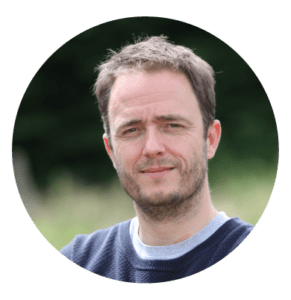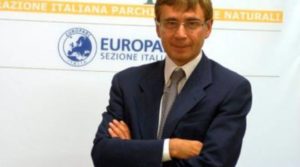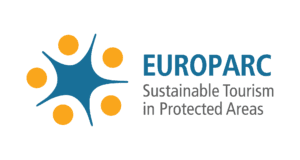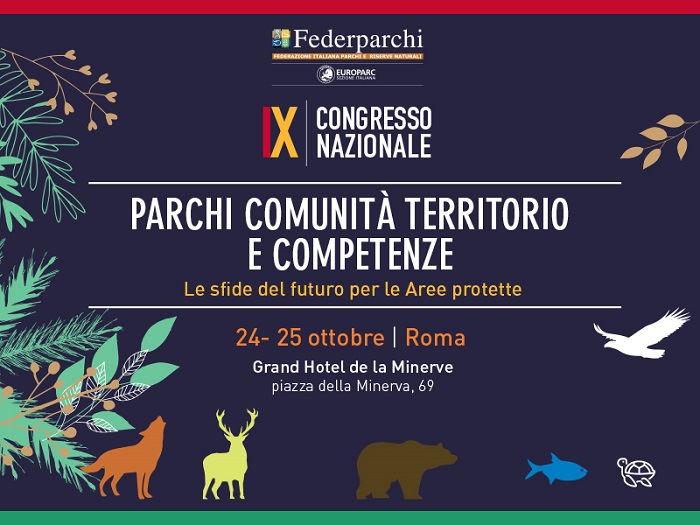Nature and Culture in Dialogue – Registrations are open
Photo: German-Dutch Nature Park Maas-Schwalm-Nette
The EUROPARC Federation and Interpret Europe are hosting a special event in Brussels as a celebration of the European Year of Cultural Heritage. How does natural heritage influence cultural identity? How can interpretation support Protected Areas better-connecting people to the story of their place and community?
- 28th November, 15:00 – 17:30
- European Commission –
- Participation is free but registration is necessary. Please register here.
In an increasingly disconnected European society it is often by reconnecting to nature through our protected areas, that people can understand their culture once more.
Cultural Identity is rooted in the connection to the land and therefore interpretation of natural and cultural landscapes is something inherent in most protected areas of Europe. European Protected areas have an important function to deliver, through the work of guides, ranger and the parks messages itself. Cultural identity, on the other hand, is not always as fixed as it may seem… and interpretation can be a powerful tool to help communities appreciate their history, even if fractured by major forces such as war, translocation, politics, modern travel, and connectivity.
In the beginning of 2018, Interpret Europe and EUROPARC Federation announced a partnership focused on the role of natural heritage to explore cultural identity. Now, looking ahead on how to follow up after the European Year of Culture 2018,
we would like to present the results of our cooperation and with the participation of DG Environment and DG Education and Culture, discuss experiences and opportunities to link nature and culture against the heritage background.
Please register here
Download the programme here
Special Side event: Wednesday, 28th November 18:30
All participants are invited by Puglia Region (Italy) to attend to the presentation of the project “LandXcape – art, storytelling, landscape”. Regione Puglia in Bruxelles – Rue du Trone, 62 – 5° floor. Light refreshments will be offered.
Please send a confirmation until 26th November to officio.bruxelles@regione.puglia.it
The “Nature and Culture in Dialogue” is a celebration of the European Year of Cultural Heritage 2018.
Following the motto: “Our heritage: where the past meets the future”, the aim of the Year is to encourage more people to discover and explore Europe’s rich and diverse cultural heritage, and to reinforce a sense of belonging to a common European space. The Year will pursue an integrated approach to heritage, and put people at the centre.
Climate change is upon us. Let us rise to the challenge, together!
Credit: NASA/Reid Wiseman
EUROPARC is happy to announce the start of a new ambitious 5-year project, NaturAdapt, which will participate to produce a response to this challenge. The main objective is to support protected area management to adapt to climate change.
Réserves Naturelles de France, EUROPARC and eight partners have come together in this LIFE Climate Action project to transform this challenge into an opportunity to innovate. NaturAdapt aims at triggering a transition towards the adaptive management of protected areas in Europe, while laying the foundations of a dynamic collective learning process.
>>> All you need to know (or almost) about the project <<<
Your experience is important to us!
We want to build upon existing best practices and meet the needs of people in the field. We will run an in-depth survey at the end of 2018 and early in 2019. Stay tuned!
In the meantime, if you have any experience in or questions about adaptive management of protected areas and/or climate change, we’d be delighted to talk about it with you! Just shoot us an email!

Olivier de Sadeleer joined EUROPARC in October 2018 to manage the Life NaturAdapt Project. Olivier is our expert in climate change, working from our office in Brussels.
We take the opportunity to introduce our new colleague, Olivier de Sadeleer, who joined EUROPARC in October to manage this project.
N.B.:This project is being developed with enthusiastic support of European Commission’s LIFE program [LIFE17 CCA/FR/000089], Agence Française de la Biodiversité and Ministère de la Transition Ecologique et Solidaire.
A Sustainable Journey – film on sustainable tourism
Produced by EUROPARC Federation in the framework of CEETO project, this film portrays the the story of a traveller seeking to escape the pressures of everyday life to a different kind of tourism that he believes will be good for nature and good for him too. The objective of the film is to inspire and inform to travellers and local communities on the concept of Sustainable Tourism.
Synopsis
During the film, the traveller explores different aspect of the area on foot and bicycle, experiences heritage and culture, natural places – wild and less wild, and local villages shopping and partaking in local food and drink. Realising that he, through his choices can affect the local environment, culture and economy. He sees too that as a guest to this protected areas, that is too a place where people live and work, that they too respect and look after their special place. He finds that sustainable tourism is good for him and good for nature too and invites others to make a similar holiday choice.
For the production of this movie, sustainable industries and local producers certified with the European Charter for Sustainable Tourism were meticulously selected and recorded in order to lead with the example for future sustainable destinations. The film has been translated into 5 different languages for its wide distribution across Europe.
Premiere and distribution
The full movie will be released on the European Parliament on November 29th, with parallel screenings taking place in the different regions that take part of CEETO Interreg Central Europe project. You can see the English version of the movie trailer below:
For further information, trailers versions in Deutsch and Italian and additional promo material please visit CEETO webpage A Sustainable Journey – The Film.
Full film release on November 291th! Stay tuned on CEETO website.
Federparchi EUROPARC Italy: The re-election of Giampiero Sammuri and the outcomes of the IX Congress
The Council of Federparchi – Europarc Italia, gathered yesterday in Rome and unanimously re-elected Giampiero Sammuri as the President of the Italian Federation of Parks. Sammuri has held the presidency of Federparchi since 2010, and will be in the position until 2021. In addition, he is also the President of the Tuscan Archipelago Park. His election took place after the IX Federparchi Congress held on October 24 and 25.
We have a new Advisory Board of Park Directors full of skills. I am confident about the work that awaits us for the Italian Protected Areas, and I thank everyone for their trust.

About the IX Congress of Federparhi-EUROPARC Italy
Proposal to IMPROVE THE EFFECTIVENESS OF PROTECTED AREAS
On the occasion of the IX National Congress of the Italian EUROPARC Section, Federparchi President Giampiero Sammuri illustrated proposals to promote functionality and rationality in the management of park entities, stressing how Parks can be a model of sustainable development for the whole country.
“We think that the critical issues of the parks can be solved in part by some simple measures, for instance, trying to make park statements more flexible – working on a balance for budgets and make them not so strict as they are now,” said Sammuri. In addition, he added
there is the need to hire young and capable technicians that the parks absolutely need, including qualified biologists, veterinarians, geologists, zoologists.
Referring to the “Park Managment Plans” Sammuri stressed that “they are born as an instrument of valorization of the territory and of the communities but their approval takes years! It would be enough to eliminate a series of useless and repetitive steps.”
Financial Resources
On the point of the resources to be allocated to the protected areas system, the president reiterates that there are many differences between national parks, regional parks and marine protected areas but the national parks do not need additional funds, those that have sufficient: the problem is how to use them, how to spend them. “The stiffness of the budgets is excessive”, he adds, “we need more flexibility”.
For the regional parks, however, the reality is different. “There are regions which have very few allocations and others that are more virtuous. So this brings a problem of resources to many regional parks. This is particularly important for the Marine Protected Areas that are our great excellence we have ten of the most important 31 Marine Protected Areas of the Mediterranean, but the appropriations are really modest, and there is a need of more resources.
During the first day, Minister Costa, speaking at the Congress, gave an initial response to the proposals of Federparchi. “The Ministry of Environment has identified resources of 1.8 million for hiring 55 new professionals in national parks. These will be specialised technicians, currently missing in the structures of the park authorities”.
Tourism: the need for a sustainable approach
With over 27 million tourists visiting the country on a yearly basis, “there is a supply chain that counts with 105 thousand jobs and a value of 5.5 billion €,” said Sammuri, adding that “Italians and foreigners go to our protected areas to enjoy their beauty and excellence. It is a positive and growing phenomenon that must be governed.
By giving the parks the possibility to directly manage visits to specific areas through appropriately trained “Park Guides”, it increases the safety of visitors, in addition to environmental protection.
Many Italian Protected Areas, implementing the European Charter for Sustainable Tourism in Protected Areas methodology, are on the path towards becoming sustainable destinations. To support Parks having an active contribution to the socio-economic development of their communities, Federparchi, with the support of the Ministry of Tourism, is implementing the Part II: Sustainable Business Partners of the methodology.

The “Advisory Board of Parks and Protected Areas Directors” is born
During the IX Congress of Federparchi, the “Advisory Board of Parks and Protected Areas Directors” has been formed. The Advisory Board is made up of ten members chosen among Italian Park directors and has the purpose of supporting the activities and functions of the statutory organs of the Italian Federation and contributing to the achievement of the associative goals.
The Advisory Board carries out scientific, technical and operational support activities, also in defining the action lines of the association and the protected areas system.
The members of the Advisory Board are elected by the assembly of directors, which is usually held in conjunction with the association’s congress and remain in office as the other statutory bodies.
The first meeting took place on October 25 during which he was elected as president Patrizio Scarpellini, director of the Cinque Terre Park.
The members of the Advisory Board are:
- Patrizio Scarpellini, president (Cinque Terre National Park)
- Stefano Donati (Vesuvio National Park)
- Maurizio Burlando (Tuscan Archipelago National Park)
- Domenico Nicoletti (Alta Murgia National Park)
- Augusto Navone (AMP Capo Carbonara – Villasimius)
- Tonino Miccio (AMP Campanella tip)
- Pierluigi Capone (Nazzano Tevere Farfa Regional Nature Reserve)
- Massimiliano Scotti (Regional Park Gola della Rossa and Frasassi)
- Maria Pia Pagliarusco (Po Delta Regional Park of Emilia Romagna)
- Bernardino Farchi (Valle Lambro Regional Park)
